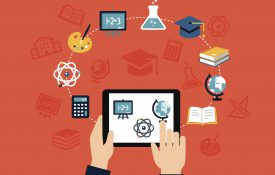-
Learn Self-Control, Stay Off the Dole
Pacific Standard: It’s an age-old debate: Are we the masters of our fate, capable of shaping our own destinies? Or are we at the mercy of our genetics and/or upbringing to such an extent that
-

Science of Learning Can Help Parents, Developers Grade Educational Apps
A comprehensive research report provides an evidence-based guide that parents, educators, and app designers alike can use to evaluate the quality of so-called “educational” apps.
-
Students’ Family Income Linked With Brain Anatomy, Academic Achievement
Many years of research have shown that for students from lower-income families, standardized test scores and other measures of academic success tend to lag behind those of wealthier students. A new study led by researchers
-
Researchers Found the ‘Bystander Effect’ in 5-Year-Olds
New York Magazine: The 1964 stabbing death of Kitty Genovese in New York City went a long way toward kicking off social psychologists’ interest in the subject: In the story’s initial reporting and subsequent retellings
-

Childhood Self-Control Linked to Enhanced Job Prospects Throughout Life
Children with high self-control — who are typically better able to pay attention, persist with difficult tasks, and suppress inappropriate or impulsive behaviors — are much more likely to find and retain employment as adults.
-
Babies resemble tiny scientists more than you might think
PBS: It’s been well established that when infants see something surprising, they look longer. This is true for babies as young as two months. But until recently, few had asked why. A new Johns Hopkins

